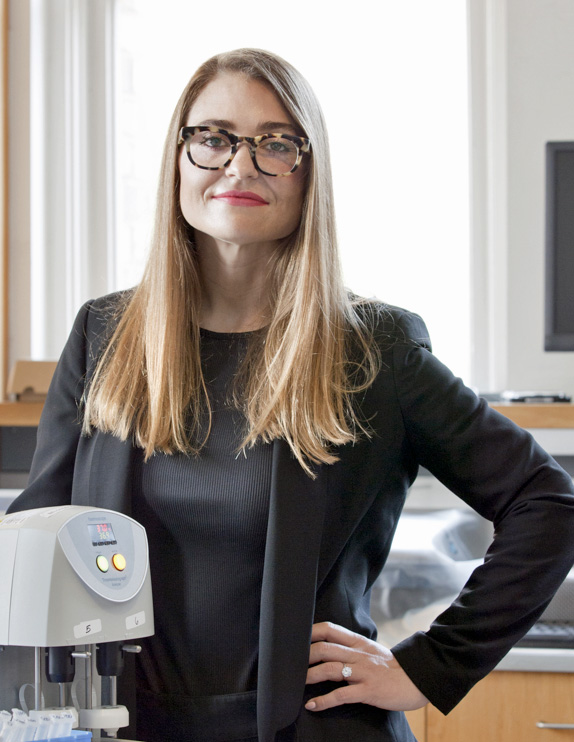Lucy Kornblith, MD Recruited as Investigator for Phase 2 of Landmark CLOTT Study
 The National Trauma Institute recently issued an update on the progress of CLOTT Study, a 2nd phase that will more closely investigate the role of platelet biology in post-traumatic pulmonary embolism. To that end, UCSF surgeon-scientist Lucy Kornblith, M.D. has been recruited by principal investigator M. Margaret “Peggy” Knudson, M.D., FACS.
The National Trauma Institute recently issued an update on the progress of CLOTT Study, a 2nd phase that will more closely investigate the role of platelet biology in post-traumatic pulmonary embolism. To that end, UCSF surgeon-scientist Lucy Kornblith, M.D. has been recruited by principal investigator M. Margaret “Peggy” Knudson, M.D., FACS.
Following a productive investigation of the incidence of pulmonary thrombi after injury and the role of clot breakdown in the development of post-traumatic pulmonary embolism, the CLOTT study group (Consortium of Leaders in the Study of Traumatic Thromboembolism) is continuing with a second phase of research and Dr. Peggy Knudson has recruited Dr. Lucy Kornblith to assist in adding investigations of the role of platelet biology in post-traumatic pulmonary embolism.
“There’s been a lot of focus over the years on the fibrin and clotting factor side of clot formation and breakdown in trauma,” said Dr. Kornblith, Assistant Professor of Trauma and Surgical Critical Care at San Francisco General Hospital, University of California San Francisco. “Now that researchers are beginning to understand that, we’re shifting some focus to look at the platelet side.”
Engaging in a combination of clinical research and bench science, Dr. Kornblith and her colleagues perform translational investigations from selected trauma patient blood samples as well as from a control group of healthy patients. They then conduct bench science in the lab with those samples.
“It is important to get blood samples at the earliest point possible, as the trauma patients come through the door, because we consider those samples the native coagulation milieu,” Kornblith explained. “Most patients have not had significant interventions between the time of their traumatic injury and the time they get to the hospital. As we take samples later, they’ve received fluids and blood products and medications, and possibly had surgeries and interventions that change the biology, so that first sample is important.”
A key goal of Phase 2 of the CLOTT Study is to determine "if there are biologic phenotypes of how platelets behave after injury that are associated with bad outcomes including clotting outcomes." Kornblith expects to have preliminary results soon, but 1-2 years will likely be required to gather sufficient data to have a more complete picture.
About the CLOTT Study
Research by the CLOTT study group is supported by a grant from the Defense Medical Research and Development Program and managed by the National Trauma Institute and the Coalition for National Trauma Research (CNTR). During the AAST clinical congress, Dr. Kornblith presented her current research representing a subgroup of Phase 2 CLOTT investigation. She recently received a $1 million Patient-Oriented Research Career Development Award from the National Institute of General Medical Sciences of the National Institutes of Health, to support her research through 2023.
